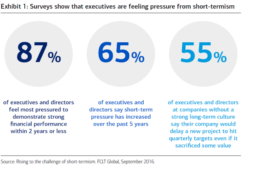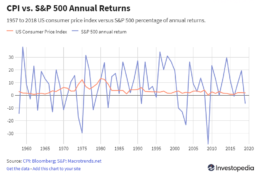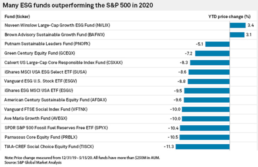
Why Invest Long Term?
- Public markets can disproportionately reward short-term earnings rather than long term growth.
- CEOs of publicly traded companies are under enormous pressure to deliver consistent quarterly earnings growth or suffer the consequences of declining share prices and or short-lived tenures in the C-Suite.
- Patience can lead to profits
- Great ideas need time to incubate, nourish, refine, and grow into comprehensive transformational solutions to current and future challenges.
- Trends take time to develop and sustain
- If you choose wisely with your head, your heart, and some solid math you can relax and enjoy upward rise and filter out the inevitable ups and downs along the way.
- Why endure the stress of daily market fluctuations when you can invest for the long haul?
- Investing in publicly traded companies can be a rollercoaster subject to the wild swings up and down as we have been experiencing over the last few months.
- Buying and holding public equities is a strategy with long term positive returns, but you have to be willing to endure market fluctuations. The long-term average annual return in the S&P 500 adjusted for inflation is about 7% (according to Investopedia). So, a diversified stock portfolio has traditionally been a solid investment choice over time.
-
- If you don’t need short-term access to a portion of your investable funds, you can buy and hold publicly traded stocks and block out periodic volatility
OR…
- Invest for the long term in private companies
- Traditionally, private company investing has been largely available only to high net worth individuals, institutions, venture capital and private equity firms.
- Such investments are highly illiquid and generally have finite holding periods of 4-7 years to realize a return upon exit (sale of the company, merger, IPO, etc.)
- Pre-IPO companies are often loaded up with debt and driven toward rapid growth at all costs to facilitate the mid-term exit
AND…
Consider Investing a portion of your portfolio in privately held companies with environmental and social Impact
Why Impact Investing?
- It’s is a smart investment decision. Even now, now impact drive (ESG) funds are outperforming other companies during the Covid-19 pandemic
Merrill Lynch’s Case for Sustainable Investing
- Inflows into sustainable strategies over the next few decades could be roughly equivalent to the size of the S&P 500 today.1
- Firms with good or improving environmental, social, or governance (ESG) characteristics have been shown to perform as well as—and may even outperform—their peers.2
- Companies that are ranked higher by ESG data providers have generally seen lower future earnings volatility.3
- Nearly two dozen emerging markets offer approximately $23 trillion in climate-related investment opportunities.4
- Companies with good or improving social characteristics have, on average, outperformed companies with negative characteristics.5
- While performance results have varied over time, companies with better scores on board diversity and management diversity saw consistently higher future return on equities than counterparts with lower scores.6
In Summary
- It’s good for society—investing in companies with positive environmental and social impact helps our planet by addressing and solving important problems.
- It’s good for your personal health—remove the anxiety of market volatility and take solace in the fact that your investments are in alignment with your personal values.
- It’s the right thing to do—make the world a better place for our kids and for future generations
- It’s good for your portfolio health too—build your net worth while you #growyourmoneyforgood
Ed Tepper is the Chief Operating Officer and Chief Finance Officer at CoPeace. As a forward-thinking holding company, CoPeace is building a portfolio of carefully selected for-profit companies with measurable social and environmental impact. To learn more about impact investing, check out CoPeace’s Intro to Impact Investing.
Related Blogs
What’s the Fuss about Impact Investing
January 28, 2020
A Sports Fan’s Thoughts on Impact Investing
August 31, 2020
A Primer on Impact Investing & B Corp Status
February 11, 2020
What is Real Impact?
October 1, 2019
Democratizing Investing, For Good
June 19, 2019
Investing: What’s Holding You Back?
March 24, 2021










